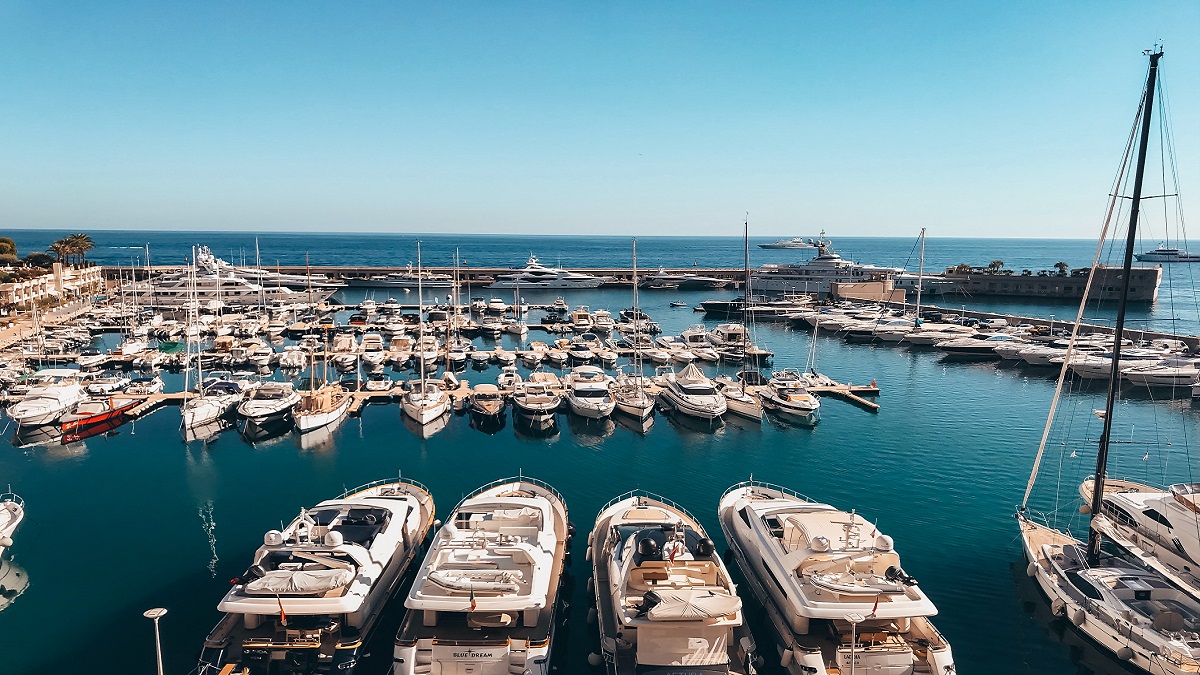If you’re selling a larger, blue-water capable yacht, your market is global. An international buyer or a boat in a foreign country makes a more complex transaction, with documentation across borders, currency risks, international banks, and tricky taxes in all the domains. Any of these can be a trap that can slow a deal down or break it wide open.
So how can you avoid these tricks and traps? The best antidote is preparation and research, and the best help is an experienced team to walk your deal through smoothly.
The “normal” yacht buying process when you are in the same country
Even with a simple buying process where the boat, the buyer, and the seller are all in the same country, the steps to close the deal can be a dance.
- The buyer finds a boat, makes an offer, the seller accepts it, and the deposit is escrowed.
- Survey and sea trial followed by acceptance. (may include price adjustments)
- Boat closing – a series of transfers of money and signed paperwork.
The closing step is where things can get sticky, but it usually follows steps like these.
- Buyer’s bank funds loan
- Loan proceeds transferred to lien holder, with balance going to selling broker
- “Ownership” is transferred for insurance and legal responsibility, in most cases.
- Lien holder sends a “release of title” letter to the broker and seller
- Broker releases proceeds to seller.
- Boat is documented in buyer’s name, new liens attached.
Most of these steps occur in similar order but may vary slightly. With all the players in one country, it can happen as quickly as a day, though it usually takes a couple for all the paperwork to settle.
Yacht, banks and money: a bigger issue when buying yachts internationally

Any boat with a lien on it or bought with a loan brings one or more banks into the mix, and depending on the countries and banks involved, the process might draw out for days or weeks. Banks in different countries have different procedures for recording loans, releasing loans, and transferring money.
Learn how the banks work when you buy a yacht
Whether you’re buying or selling, it’s critical to know what your bank expects for paperwork, wire transfers, documentation, and any other needed steps. Questions to ask include:
Pre-clear everything
The other communication you want with your bank (and your broker) is to “pre-clear” every step of the transaction. You want to walk through with them, step-wise, exactly what they need and when, and how it is supposed to get there, and what happens when it does.
Make a list of the steps, the responses you expect from your bank, and a rough timeline for all of them. If your broker hasn’t already provided this, work with them to fill this list out.
You do not want to be delayed running down some stamp, certification, or fee in local currency that you hadn’t expected.
Read also: Buying a Yacht : The Frequently Asked Question
Keep in mind the risk of currency fluctuations when buying a yacht abroad

Every time you change currencies, there’s a risk that the currency prices will change against each other.
For example, you are in the U.S. and all your bank accounts are in USD and on May 1st you contract to buy a boat for €200,000, paid in Euros. The Euro is trading 1.091 USD, so on that day you are buying the boat for $218,200. Now, four weeks later when you go to wire money at the closing and the rate is 1.115. Suddenly your boat cost $223,000, and the boat is now almost $5,000 more expensive simply because your currency went down against the seller’s.
This comes in to play the moment you make an offer, because you will need to make a deposit somewhere in the target currency. In the example above, if you put 10% down (€20,000) and convert $22,300 to Euros for the deposit If the deal falls through and the dollar goes up against the Euro instead to 1.067, you’ll get $21,340 back.
For this reason, sellers prefer sales contracts in their own home currency. Then they know the proceeds after liens, and there’s no risk that currency fluctuations will leave them short of covering their note. But that puts all the currency risk on the buyer.
The nuances of buying and selling currencies beyond this article, and you should speak to an expert. But do not come into any international, multi-currency deal without planning for currency risk. Both sides need to agree on the best way to handle it, whether it means the seller locking in a currency purchase in advance, both parties agreeing to a conversion rate method for handling the risk, or the broker holding funds without converting them until the best time.
Part of this is managing the bank fees for the conversions and wires. Handled the wrong way, it can cause hundreds or even thousands of dollars in unnecessary fees. So ask the banks, get quotes, and find the quickest, most reliable way to send the money without huge fees.
Read also: IS BUYING A BOAT A BAD IDEA?
Your sales document are even more important when your buy or sell a yacht in a different country

Every sale involves a change in documentation, and most international sales buyers want to change the flag country. It’s important to understand the vagaries of each government agency before you file for re-documentation. As mentioned above, the correct certifications, notarizations and stamps are a must. You are dealing with functionaries and civil servants in a government far away, and they may not be familiar with what you provide. And they will not make exceptions to their own rules.
The U.S. Coast Guard, for example, is notorious for requiring a U.S. notarized signature on a bill of sale to release documentation on a vessel. They will reject any notarization that is not from a U.S. approved notary. Many foreign lawyers are approved for this, and you can get it done at most U.S. consulates, embassies, or consular agencies. But you need an appointment, you must go to the notary in person, and it will cost much more than the nominal five or ten dollars a domestic notary may charge in the states.
That’s just one example, but you need to know not only what your intended flag government expects, but what the seller’s government requires to release any titles or documentation.
You may take possession of a yacht after the money changes hands and they released the liens, but you cannot clear out of or into any countries until your flag documentation is in order.
Taxes, taxes and taxes again! Even abroad, a yacht purchase is usually liable for taxes
Most government want a piece of the action on any boat purchase. For local purchases, this may be a VAT, GST, or sales tax. But for international transactions, a boat must often (but not always) be imported into the new flag country.
As always, the costs and requirements for this vary from country to country. Some countries allow you to flag the vessel immediately, but don’t require importation until the boat returns to its home waters. Others want their money as soon as you apply for the documentation. Others still may waive importation in some circumstances, or require specific documentation on the fair market value of the yacht to calculate a number that may or may not be the same as what you paid for it (remember currency risk?).
Selling a foreign-flagged vessel in a different country than it’s flag has its own tax challenges. A boat may be physically IN a country, without being legally in the country for tax purposes. Visiting yachts that are not imported because they will leave again fall into this category, and may receive different local tax treatment. But selling them in the country can trigger tax events, especially if a local resident buys it.
Some nations are quite easy going about unimported boats. For example, one country in theory requires a boat to be imported if you want to sell it, but in practice you can get a waiver on paying the importation until it’s clear the boat is being kept in the country by a local buyer. Other countries may request a bond or even payment of importation up front, which they may refund if you don’t sell the boat locally.
We’ve avoided specific country examples, because laws and policies are constantly changing. So before you get involved with any boat sitting in a country where it isn’t flagged, make sure you have a clear picture of its tax status and any local requirements. Also, look into how the transaction may trigger taxes, or how you may legally avoid taxes in the transaction. The local sales “experts” may not know the rules for international sales if they haven’t done many.
Buying a yacht abroad complicate visits and surveys

If the pandemic taught us one thing, it was that you can conduct a lot of business over video calls. Given the time and expense it takes to get to another country to see a boat, many brokers and buyers are conducting initial walkthroughs and showings via video calls.
If you’re buying a yacht somewhere remote, it can save days of traveling and thousands of dollars wasted seeing a boat you don’t like. You can see a lot more boats for free and get a good sense of them.
But there are downsides. A video call only uses two of your senses, and it doesn’t use them nearly as well as your eyes and ears in person. You won’t hear the faint creaks, squeaks, and groans, and you can’t zoom in easily and look for the fine detail that can highlight good and bad things about the boat’s condition.
And you’ll miss other experiences, like the smell on board, the feel of the cushions and couches, or how well the helm layout really works when you’re sitting behind it. Sometimes the smell of a boat tells you much about how she’s taken care of, and losing that puts you at a disadvantage.
The answer is to get local help. If you know someone on the ground you can trust, they can attend the video showing with the selling broker and be your eyes, ears, nose, and backsides. You can hire someone to do this for you if you don’t have a friend there. It’s not the best solution, but it’s better than spending days traveling to see a boat with a strange smell and an uncomfortable saloon that you know is wrong within seconds of stepping on board.
And the same challenge applies to surveys – if you can’t be there, you may miss a lot. But you can attend parts of a survey and video chat with the surveyor to go over findings, and have your own agent on site.
A broker by your side is almost mandatory when you buy a yacht in a different country than yours

One key to making a multi-national deal go smoothly is an expert broker working on your side. Boat brokerage isn’t a highly regulated industry, so look for someone with experience beyond just selling local boats to local buyers.
If you’re selling, make sure you list with a brokerage that is comfortable with international deals. They should have contacts to deal with currency purchases and transfers, and know what foreign banks and governments will want and do. Ideally they’ll be able to handle the all the certification and notarization you need, or know where to get it done.
When you’re buying, consider your own buyer-broker with international experience. A buyer-broker is a broker who represents you, not the seller. Usually you find a buyer-broker before you find the yacht, and engage them with a contract. They are paid by splitting or “co-brokering” the listing with the selling broker. In almost every jurisdiction the listing broker’s first financial responsibility is to the seller, not you. So you have no one working in your interests if you don’t have your own broker.
Not every country has this concept for boat brokers, and it’s not well received everywhere because of the commission splitting. In some places, you may be asked to pay your own broker instead. It’s common in the U.S., but ask in other countries before you assume a broker is working for you and not the seller, and that fees will be split. A good buyer-broker can protect your interests and make sure that your international deal sails smoothly.
Read also: WHAT IS THE BEST COUNTRY TO REGISTER YOUR YACHT OFFSHORE?




